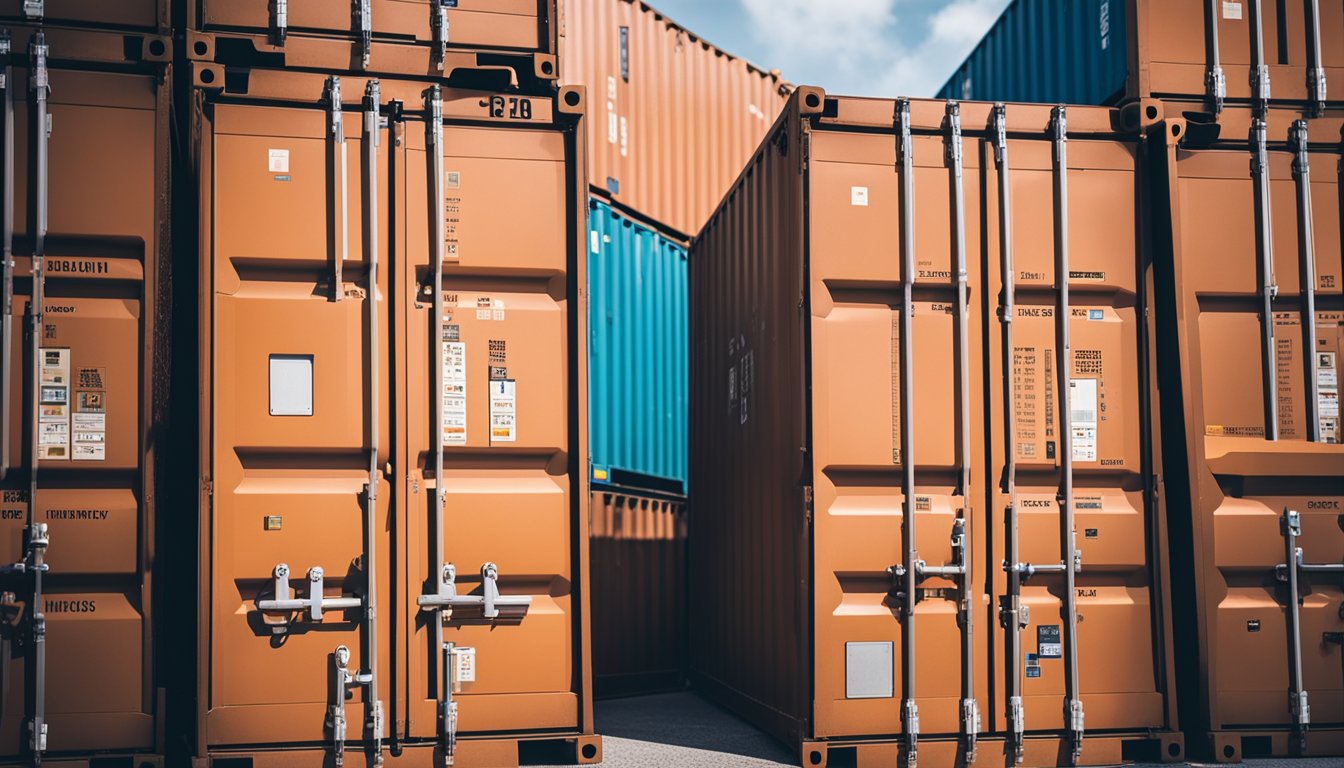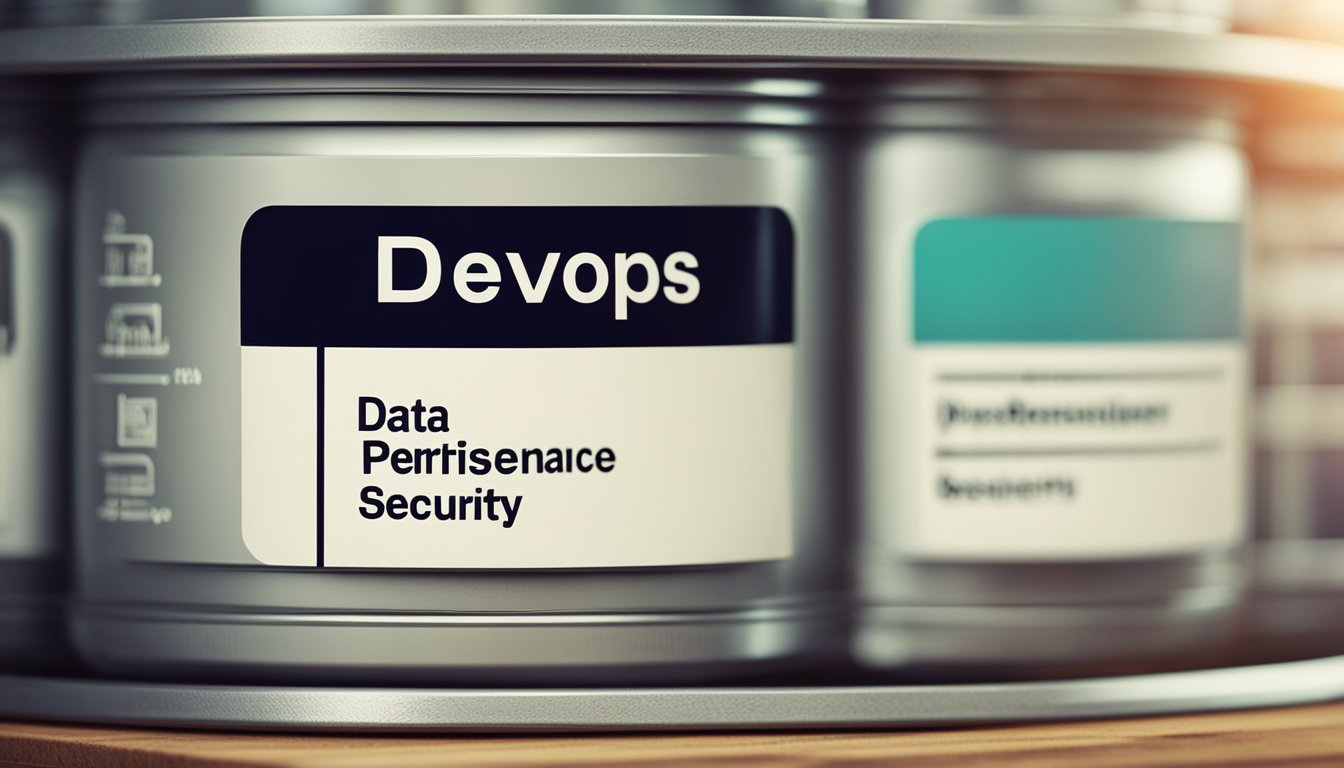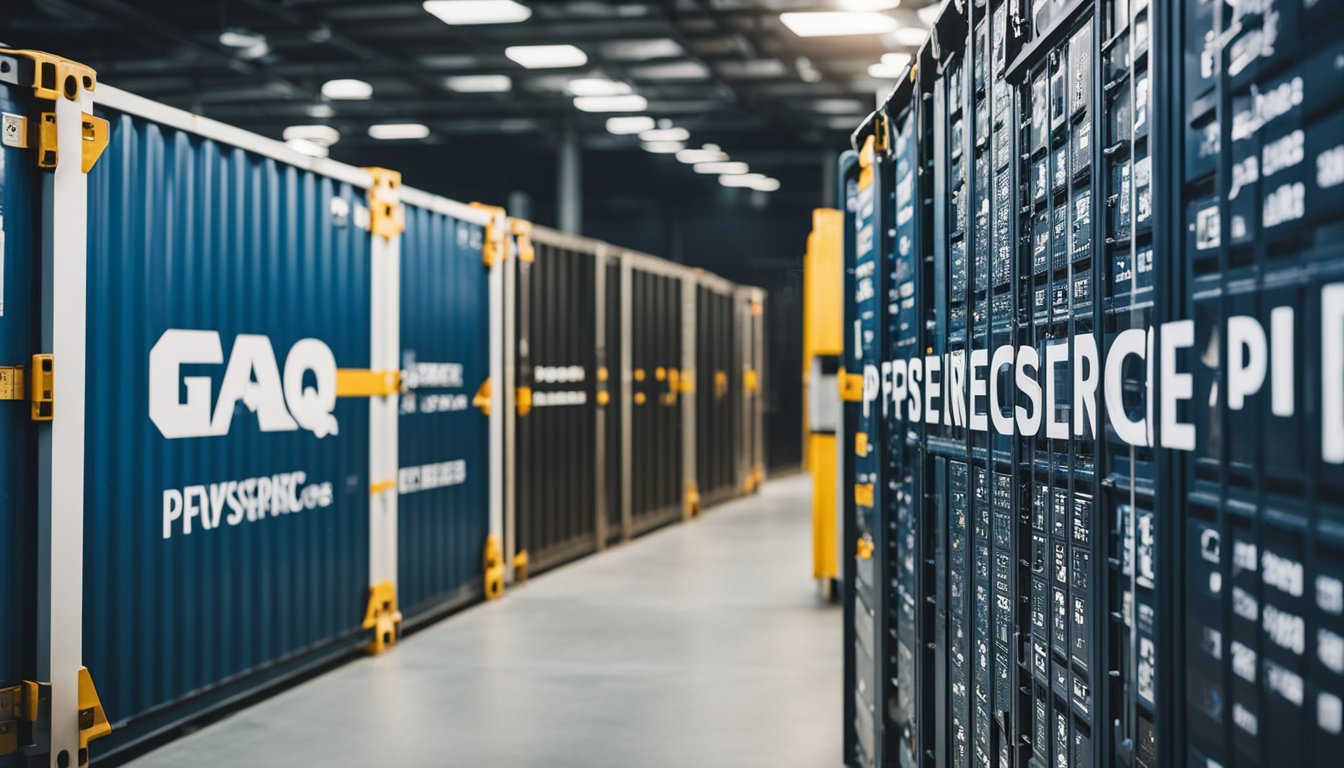Container Security and Data Persistence DevOps Best Practices for Secure and Reliable Deployments
As more and more companies move towards containerization, container security has become a top priority for DevOps teams. Containers offer many benefits, such as portability, scalability, and efficiency, but they also come with unique security challenges. In this article, I will explore the importance of container security and data persistence in DevOps.

Understanding container security is crucial for DevOps teams to ensure their applications are secure. Containers are designed to be lightweight and fast, but this also means they lack some of the traditional security features found in virtual machines. Containers share the same operating system kernel, which means a vulnerability in one container can potentially compromise the entire host system. DevOps teams need to implement security measures such as container image scanning, vulnerability management, and access control to mitigate these risks.
Data persistence is another important aspect of container security in DevOps. Containers are designed to be ephemeral, which means they can be easily replaced or destroyed without any impact on the application. However, this also means that any data stored within the container is lost when the container is destroyed. DevOps teams need to implement solutions such as external data stores, volume mounts, and bind mounts to ensure data persistence in their containerized applications.
Key Takeaways
- Container security is crucial for DevOps teams to ensure their applications are secure.
- Containers lack some of the traditional security features found in virtual machines, and DevOps teams need to implement security measures such as container image scanning, vulnerability management, and access control to mitigate these risks.
- Data persistence is important in container security, and DevOps teams need to implement solutions such as external data stores, volume mounts, and bind mounts to ensure data persistence in their containerized applications.
Understanding Container Security

As containerization has become more prevalent in DevOps, it is important to understand the security implications that come with it. In this section, I will cover some of the key aspects of container security, including threats and vulnerabilities, security tools and practices, container orchestration and security, and the DevSecOps approach.
Threats and Vulnerabilities
Containers are not immune to security threats and vulnerabilities. Some of the common threats include malware, misconfiguration, and vulnerabilities in the container host, APIs, and layers. It is important to have a vulnerability management strategy in place to detect and remediate any vulnerabilities in a timely manner.
Security Tools and Practices
There are various security tools and practices that can be used to secure containers. Image scanning, security testing, and vulnerability management are some of the key practices that can help ensure that containers are secure. It is also important to have a security strategy in place that includes role-based access control and collaboration between the security team and developers.
Container Orchestration and Security
Container orchestration tools like Kubernetes can help manage containers at scale. However, it is important to ensure that security is integrated into the orchestration process. Role-based access control and security policies can help ensure that containers are only accessible by authorized users.
DevSecOps Approach
The DevSecOps approach emphasizes security throughout the entire software development lifecycle. By shifting security left and integrating it into the development process, security issues can be identified and remediated earlier in the process. Collaboration between the security team and developers is also key to ensuring that security is a priority throughout the development process.
In conclusion, understanding container security is crucial for any organization using containerization in their DevOps processes. By implementing security tools and practices, integrating security into container orchestration, and adopting a DevSecOps approach, organizations can ensure that their containers are secure and their data is persistent.
Data Persistence in DevOps

Understanding Data Persistence
In the context of DevOps, data persistence refers to the ability of data to survive beyond the lifetime of a container. It is an essential aspect of managing data in containerized environments. In traditional monolithic applications, data is typically stored in a database or file system that is accessible to the application. However, in a containerized environment, data is stored in a container, which can be ephemeral and destroyed at any time. Therefore, it is important to understand how to manage data persistence in DevOps.
Managing Data in Containers
Managing data in containers can be challenging, especially when it comes to ensuring data persistence. One approach to managing data persistence is to use data volume containers. A data volume container is a container that is specifically designed to store data. It can be used to store data that needs to persist beyond the lifetime of the container. Data volume containers can be accessed by other containers, allowing them to share data.
Another approach to managing data persistence is to use bind mounts. Bind mounts allow you to mount a particular location on your server's filesystem to a location inside the Docker container. This approach is useful when you want to store data on the host machine, but still have it accessible from inside the container.
Data Persistence in Microservices
In a microservices architecture, data persistence is even more critical. Microservices are small, independent services that communicate with each other over a network. Each microservice typically has its own data store. Therefore, it is important to ensure that data is persisted across different microservices.
One approach to managing data persistence in microservices is to use a shared data store. A shared data store can be a database or a file system that is accessible to all microservices. This approach allows microservices to share data and ensures that data is persisted across different microservices.
Another approach to managing data persistence in microservices is to use event sourcing. Event sourcing is a pattern where all changes to application state are stored as a sequence of events. This approach allows you to reconstruct the state of the application at any point in time.
In conclusion, managing data persistence in DevOps is critical to the success of containerized environments. By understanding the different approaches to managing data persistence and implementing the appropriate solutions, DevOps teams can ensure that data is secure, available, and persistent.
Frequently Asked Questions

What are some best practices for ensuring container security in a DevOps environment?
In a DevOps environment, it is crucial to ensure container security. Some best practices for ensuring container security include regularly updating the container images and scanning them for vulnerabilities, restricting access to the container registry, and implementing network segmentation to prevent unauthorized access to the containers.
What are the potential risks of not properly securing container data persistence in DevOps?
Not properly securing container data persistence in DevOps can lead to data breaches, loss of sensitive data, and unauthorized access to the data. It is essential to ensure that the data is encrypted, access controls are in place, and the data is backed up regularly to prevent data loss.
How does AWS address container security and data persistence in its DevOps offerings?
AWS provides several services to address container security and data persistence in its DevOps offerings. Amazon Elastic Container Service (ECS) and Amazon Elastic Kubernetes Service (EKS) provide built-in security features such as encryption, access controls, and network segmentation. AWS also offers Amazon Elastic File System (EFS) for persistent storage of container data.
Can you explain the difference between VM security and container security in a DevOps context?
In a DevOps context, VM security and container security are different. VM security involves securing the entire virtual machine, including the operating system and applications, while container security focuses on securing the container image, runtime, and data. Containers are more lightweight and easier to manage than VMs, but they require additional security measures to ensure they are secure.
What are some common security measures that containers provide in a DevOps environment?
Containers provide several security measures in a DevOps environment, including isolation of applications, resource limiting, and network segmentation. Containers are also immutable, meaning they cannot be modified once they are deployed, which helps prevent unauthorized access and tampering.
What are the benefits of using containerization for data persistence in a DevOps workflow?
Using containerization for data persistence in a DevOps workflow provides several benefits, including improved scalability, portability, and flexibility. Containers are lightweight and can be easily moved between environments, making it easier to manage and deploy applications. Additionally, containers can be easily replicated, ensuring high availability and reducing downtime.

We are committed to delivering a new level of automation that will help organizations save time, money, and staffing resources.
 WRITE FOR US!
WRITE FOR US!
